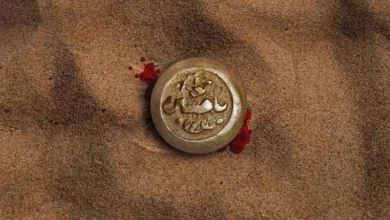Importance of Imam Hasan and Muawiya treaty

Importance of Imam Hasan and Muawiya Treaty
When we looked into the life of Imam Hasan (AS), whether it was during the time of his father or during His own rule, we saw that he was strong, determined, and acted quickly to solve problems and come up with good, reasonable answers.
This was something that couldn’t be beaten. We saw and lived through all of this, and it can’t be questioned because it’s written down in history books. We saw it when he got the people of Kufa fired up to fight for Islam in the battle of al-Jamal.
We saw Him telling the people at the Battle of Siffin to fight against Muawiya. After the hearing, we saw Him talk to the group of his father. When He took over as Imamate, we saw that He was just as determined, smart, and skilled as He had been when His father was in charge. He moved quickly to strengthen the base of His state. He kept questioning the Umayyads’ lies and putting an end to the uprisings in Syria in order to keep the Islamic State stable.
Before the war began, Muawiya tried to put Him in a box. But He did not give in. He had a high, noble spirit that knew only the right and would never bow down to the forces of lies. But the way things were at the time kept him away, which is something that has happened very rarely in history.
The chaos took over the army led by Imam Hasan (AS). It was filled with spies, agents, and people who brought bad news. Imam Hasan (AS) was very close to having to give up on His enemy! The ummah, whose bright and successful future He was planning and whose march into history He was leading, changed its path to help his enemy. That’s what happened because of the lies and gossip.
Because of these things, the balance of power began to tilt in favor of the Umayyads.
Historical Background of Imam Hasan and Muawiya Treaty
Here are the worst things that happened to Imam Hasan (AS) because He stood up to the cruel Umayyads:
- His top boss on the front lines, Ubaidullah bin al-Abbas, turned Him and joined Muawiya. He got two-thirds of the force, which was supposed to stop the army from moving forward, to leave with Him. At the most important point in Imam Hasan’s (AS) plans, chaos and confusion broke out in His camp. Ubaidullah bin al-Abbas was paid by Muawiya.
- The armed troops led by Imam Hasan (AS) were torn between slogans, wants, interests, and beliefs. Some people only wanted the fruits of war! Some people had a grudge against the Umayyad family, but they tried to hide how much they disliked the Imamate of Imam Hasan (AS) and His family.
A lot of people in the army who liked the Umayyad party in Syria were excited about the benefits Muawiya had promised them. Even worse, boredom started to set in at the Imam’s camp, especially after the army had fought Imam Ali’s (AS) three wars, Jamal, Nahrawan, and Siffin. In their thoughts, their memories were still vivid.
Next to these people was a group of Ahlul Bayt (AS) followers. They were a small group compared to the growing number of ragtag people and the passion of the plotters who wanted to hurt them.
- Muawiya gave a lot of money to the leaders of the Iraqi community. He did this in a way that had never been done before. They were left with nothing to do and no direction. They gave up their original plans to fight Mu’awiyah together with the Imam.
Money was like a club with two edges. Not only did it change the balance of power quickly in Muawiya’s favor, but it also left a surprising mark on the minds of the Iraqis. They sent Muawiya a lot of letters telling him how loyal and obedient they were to him. They promised to give him Imam Hasan (AS) as a prisoner when the war broke out and the clock struck zero.
Imam Hasan (AS) talked about this betrayal when He said, “By Allah if I had fought Muawiya, they would have grabbed my neck and turned me over to him calmly. By Allah, making peace with him with honor is more important to me than being killed by him as a hostage or set free, which would be bad for the tribe of Hashim.
- The grandson of the Prophet of Allah (PBUH) made sure that no blood, especially the blood of the faithful, was spilled.
Some of the things the Imam said show that he had good intentions: “I was afraid that the Muslims would be wiped off the face of the earth. I wanted men to be drawn to the faith.”
“…The only reason I made a deal with Muawiya was to keep you from dying.”
- His enemy’s army was strong and well-trained because the soldiers followed Muawiya ‘s orders and no one tried to turn them against him. But in Iraq, there was no union. The army of Imam Hasan (AS) was torn apart by words, ideas, wants, and interests that were in conflict with each other.
- As we’ve seen in other places, Imam Hasan (AS) had great spiritual power because the Qur’an says He was cleansed of sin. He is one of the most important members of the blessed family of the Messenger of Allah (P.B.U.H). The Holy Prophet (P.B.U.H) himself confirmed this fact. He would never lie to someone or betray them.
- This soul was connected to Allah, the Highest, and was inspired by Him and His great shar’iah. This made Imam Hasan (AS), no matter where He was, stay out of a war that would waste blood and kill people for no reason. Also, from the point of view of Islam, the factors were not in the least available, as we can see from the behavior of His followers who have no morals.
- This is very different from Muawiya, who didn’t care how many people were killed or how much blood was spilled as long as he stayed in charge of the Muslims and got the tax money. He was the ruler who lived in the house of alKhadara’ and enjoyed small, everyday joys.
- When Imam Hasan saw that Muawiya was able to get people to follow him, He wanted to show Muawiya for what he really was. It could only be done if Muawiya had complete control and ran the ummah on his own. The ummah would see how he ruled and find that it was very different from how they thought the Commander of the Faithful, Imam Ali bin Abi Talib (AS), should rule.
- Those who followed Muawiya would be responsible for the historical tragedy in which the ummah lost the guidance of Ahlul Bayt (AS) and their pioneering Imamate, both while they were alive and after they died. The bad effects of that kept destroying the ummah, generation after generation, until the system of Islam, which was supposed to last and rule, became nothing more than a piece of history lost in books.
- Historians say that three people tried to kill Imam Hasan (AS), but they failed. The first time someone tried to kill Him, a man shot him with an arrow while He was praying. The Imam (AS) was not hurt by him.
The second time someone tried to kill Imam Hasan (AS), He was praying when he was stabbed with a knife. The Imam (AS) was not hurt again.
In the third attempt to kill Him, He came very close to dying. He was attacked by a crowd, which broke into his tent and stole His prayer rug. During the fight, al-Jarrah bin Sinan al-Asadi stabbed him in the thigh with a sword, doing serious damage. It went all the way to the bone.
After that try, the Imam had to stay in bed and was a guest at the home of Sa’d bin Masood al-Thaqafi, his governor in al-Mada’in.
- Muawiya used propaganda to confuse the thoughts of the Iraqis, which was a good way to use it as a tool. His spies and fans would show up every now and then to spread nasty tales. They would have an effect on the mob, who would do what they said. Here are some examples:
- They said that Imam Hasan (AS) wrote letters to Muawiya to make peace.
- They heard that Qais bin Saad had switched sides and joined Muawiya.
- The most convincing story they spread was when a group of Umayyads came to look for peace. When the Imam (AS) refused to make peace with Muawiya, the negotiation team went out and said that Imam Hasan (AS) had finally accepted to end the fighting and stop killing Muslims.
The crowds were so angry that they attacked his tent. They didn’t like the so-called peace, but they didn’t want to fight either.
- Mu’awiyah’s call for peace had already reached the camp of Imam Hasan (AS) and was accepted there before the Imam (AS) agreed to it. The fallen souls in the camp of the Imam (AS) heard that call. The first people to accept it and teach it were Muawiya ‘s followers. It ended up in the camp of Imam Hasan (AS), and the Imam just let it happen.
- Imam Hasan (AS) found the ummah around him or Muawiya to be unaware of how wrong they were living and quiet because they didn’t want to stand up for what was right and fight the non-believers. Imam Hasan (AS) wanted to find out who was calling for rebellion, what vows and oaths they were making, how badly they wanted power by any means, and how they were hurting the ummah and Islam’s beliefs.
- By explaining all of these things, Imam Hasan (AS) actually set the stage for the movement of Imam Hussain bin Ali (AS), the Lord of Martyrs.
- These are the most important reasons why Imam Hasan (AS) signed the treaty with Muawiya, who was a traitor.
Would any other master or leader have done something different if they were in the same situation as Imam Hasan (AS)?
After all, there was no way they could have gone to war. No sane person would have gone along with it. Then how could a great person like Imam Hasan bin Ali (AS) do it?
Some people would say that Imam Hasan (AS) would have been better off if he had given up everything for his right. But if Imam Hasan (AS) had fought, he and everyone in his family would have died for sure. The light of Islam would have gone out for good if the Umayyads had won. Then no one could tell the truth from the lies. The ummah would never have known, as it did later, how wrong their masters were and how they were made slaves.
Because Imam Hasan (AS) cared about Islam, he signed the paper so that he could describe the Shari’ah, its rules, and dimensions, to Muhammad’s (PBUH) ummah during Muhammad’s (PBUH) last years, as we will see in this part of his life.
We think it’s appropriate to mention the most important parts of the paper that Imam Hasan (AS) and Mu’awiyah signed:
- Mu’awiyah bin Abu-Sufyan takes control of the business of the ummah, as long as he follows the Book of Allah and the Sunnah of His Messenger (PBUH).
- When Mu’awiyah dies, Imam Hasan (AS) takes over as leader of the ummah. Imam Husayn (AS) takes the place of Imam Hasan (AS) if he was already dead.
- Everyone, whether they are Arab or not, Syrian or Iraqi, should be free and safe, and they shouldn’t be bothered because of how they felt about the Umayyad rule in the past.
- These are the most important parts of the deal that both sides agreed to. Since it is clear to the reader, it helps the ummah and its good Message a lot. Imam Hasan (AS) could only get these words for the ummah and its purpose. If things could have been better, he would have taken advantage of them right away.
A few Muslims did not agree with the pact. Imam Hasan (AS) told them why he had done what he had done. He said to Bashir al-Hamadani:
“By no means am I making the faithful look bad?
Instead, I am praising them. I only made peace with you because I didn’t want to kill you when I saw my following stalling and not going to war.
Al-Hamadani was the first one who didn’t fight because he was too scared.
Malik bin Dhumrah asked him about the paper, and he told him, “I was afraid that the Muslims would be wiped off the face of the earth. I wanted men to be drawn to the faith.”
He said to Abu-Sa’eed:
“Abu-Sa’eed! I made peace with Mu’awiyah for the same reason that the Prophet of Allah (P.B.U.H.) made peace with Banu Dhumrah, Banu Ashja’, and the people of Mecca when he came back from al-Hudaibiyyah.
Imam Muhammad al-Baqir (AS) says, “By Allah, what Hasan bin Ali (AS) did was better for this ummah than what the sun had shone on.” He is talking about how important the deal was and how it helped Islam and Muslims.




